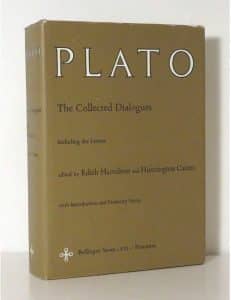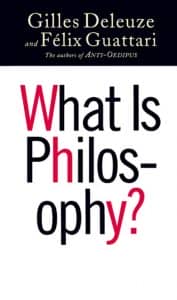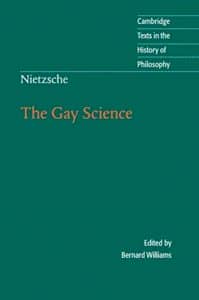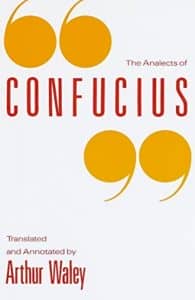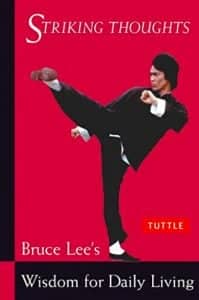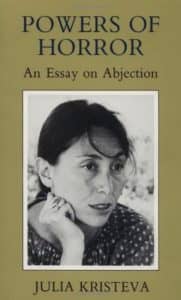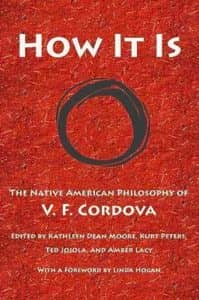Podcast: Download
Subscribe: Apple Podcasts | RSS
 If you’re looking for the ultimate list of must-read philosophy books, welcome.
If you’re looking for the ultimate list of must-read philosophy books, welcome.
I’ve been reading philosophy since I was very young, starting with Albert Camus.
In fact, reading Camus at age fourteen is perhaps too young!
It started with stumbling on The Stranger at the local library. It’s a quick and easy novel, but also tremendously profound.
At the back of the novel, the author bio talked about Camus’ work in existentialism, so I went on to read The Myth of Sisyphus and his other novels.
Although I didn’t understand much of his philosophy at the time, it introduced me to an entire world of writing about thinking. I was hooked.
And now I want to share with you my top pics, why they matter and some of the key points that have stuck with me.
Ready?
Let’s get started!
The 20 Best Philosophy Books for Modern Thinkers
Before we get started, let’s call a spade a spade.
There’s something deeply unphilosophical about pretending we can make a Greatest of All Time list when it comes to philosophy.
Why?
Because what is true in philosophy is true regardless of the book that it appears in.
This quest for the truth is very different than what happens in religious books, even if many religious books involve a level of philosophy. And any book that helps others discover not only what is true but how to think about and discover truths is very valuable.
Also, I believe that when we define philosophy to our best abilities, philosophy is something we do. In other words, philosophy is not really about reading books or thinking about ourselves psychologically. It is about creating concepts with an attuned awareness of how our reading influences the concepts we develop.
Case in point, I am influenced by Gilles Deleuze in thinking that philosophy is an act of creating concepts. I believe he’s right and find that various philosophies are most important when the philosopher at hand is working on new concept creation.
Plus, as you’ll see, I’m also influenced by ancient thinkers and people like Nietzsche that at some level, we don’t even do that. Rather, philosophy does us.
I’ll explain more of what I mean as we go through this list.
One: Plato’s Dialogues
Getting to attend university was an extraordinary opportunity. But it wasn’t until my second year that I chose a major, which at that time was Political Science.
The first reading I was assigned was Plato’s The Republic. It’s an extraordinary read that takes you into deep ideas by questioning just about everything. As you follow its various debates, The Republic demonstrates how to become an effective debater yourself.
It’s difficult for me to underscore the influence this book had on me during my early years as a university student.
I went to the professor as soon as I was done reading it and asked for more. She told me that Plato had written a ton of dialogues and suggested the Edith Hamilton and Huntington Cairns edition of Plato: The Collected Dialogues.
All of the dialogs are worth reading, but my favorites are The Republic, Sophist, Ion and Lysis.
Lysis was particularly important for me many years later. It has a lot to do with friendship, which is the topic I ultimately wrote my dissertation on.
In terms of core ideas, there’s so much to highlight, and that’s one reason I make this my top recommendation. A major benefit of reading Plato beyond just a few dialogues is that you get to see just how old certain unresolved problems are.
It’s not that there’s “nothing new under the sun.” Rather, you experience just how nimble the ancient mind was and how little our capabilities have changed. Although you would think our current concerns about technology would be very different, the core anxieties are right there back circa 427-348 BCE.
Pro-tip: Take some time to read about the Pre-Socratics. A lot of what you find in Plato is a reaction to what philosophers like Thales, Anaximander, Heracleitus and others had to say about nature.
Two: What Is Philosophy?
Let’s skip ahead a few thousand years.
What is Philosophy? is a fantastic companion to Plato for a few reasons.
First, it helps you see how Plato created many important ideas as concepts linked to personae.
These points are important because we often think about truth as something objective. In other words, the truth is true regardless of our opinions about it.
But as Deleuze and Guattari argue, it is science that tries to “freeze” observations in time in order to make truth claims about the world. That is quite like what the Pre-Socratics tried to do and why Plato reacted to them as he did.
Instead, Deleuze and Guattari see philosophy as something intensive and coming into being as one does philosophy in time.
They distinguish their preferred kind of philosophy as immanence rather than the transcendence of Platonic thought.
Rather than respond to the world as if there were some other essential truth or God behind it (transcendence), they respond to being itself (immanence).
In this approach, they are heavily influenced by Nietzsche.
Three: The Gay Science
Friedrich Nietzsche wrote many books. They’re all important because, as Martin Heidegger shows in his commentary on Nietzsche, he was incredibly consistent across his career. It’s almost as if he knew what he would write in his last book in some of his earliest youthful writings.
I chose The Gay Science for this list because this is the book in which Nietzsche warns us against the harms created by thinking that the universe is someone “alive.”
Rather, we need to accept that things are just here and happening. We don’t necessarily get to know why.
This book also gives one of the most important references to the notion that “God is dead.”
However, as Fred Ulfers pointed out when I studied Nietzsche with him at the European Graduate School, this crude idea is not really what Nietzsche meant to convey.
Rather, Nietzsche was critiquing how we all behave religiously. And if we are going to go around acting ritualistically to our gods or even the universe itself (as if it were alive), then our gods may as well be dead.
This is a very different pronouncement and if you read The Gay Science carefully, you’ll pick up this nuance. You’ll become a much better thinker too.
Pro-tip: The Bernard Williams edition of The Gay Science is especially good.
Four: The Analects
Of course, Nietzsche isn’t the only person who thought that our capacity for ritual was out of alignment. Confucius focused on this long before he was born.
The Analects often isn’t on lists of top philosophy books because some people think it is merely commentary. And it was also compiled long after Confucius’ death, so doesn’t have an author in the strict sense.
However, as Bryan W. Van Norden points out in Taking Back Philosophy, you find all the important concerns covered by this text. He compares Confucius to Plato for the importance of how the nature of being is discussed as a formal procedure. Conventions are described, interrogated and revised in order to help us live better at the personal and societal level.
Other key points include:
- The role of the individual relative to the state
- Learning and being a good student
- Developing and maintaining personal integrity
- Continual self-evaluation through reflective thinking
Long story short: Don’t miss The Analects.
Pro-tip: The Arthur Waley version looks better on the page than some versions I’ve seen. It also comes with excellent discussions of key terms and useful annotations.
Five: Taking Back Philosophy
Although I think parts of Taking Back Philosophy: A Multicultural Manifesto are argued strenuously to the point of excess, at least Van Norden acknowledges this aspect of his style.
He’s clearly passionate about this main thesis: We need to be aware of philosophy from a wide number of traditions, cultures and historical periods. This includes philosophical works from:
- Asia
- South America
- India
- Africa
- Aboriginal philosophy
- Native American
And many more.
He makes a compelling case that many traditions have been not only neglected by European thinkers, but also actively dismissed.
However, a weakness of this book is its lack of acknowledgment of European thinkers who have embraced other traditions. Schopenhauer, Nietzsche, possibly Hume, Deleuze and many others not only owe a debt to philosophers from around the world. They embrace them.
Another issue with this book is how the notion of “West” and “Western” is portrayed. Is there anything particularly “western” about some of the most important Greek philosophers? Hardly, given the fact that many of them were from what is now called Turkey.
Nonetheless, I feel that Taking Back Philosophy belongs on your shelf and I’m glad it’s on mine. I refer to it often and it helps me think better about bringing together philosophers from around the globe and throughout history.
Six: The Nichomachean Ethics
Aristotle is not one of the Greek philosophers who originated from Turkey, even though apparently in 2016, the country tried to claim him.
Most people think that Aristotle was born in Macedonia, but where exactly he is from is not what makes The Nichomachean Ethics so important.
This book is important because it discussed many concepts that are important to us today:
- The nature and role of happiness in our lives
- Examples of the golden mean, such as its role in courage
- Honesty
- Friendship
I used this text in particular for my own dissertation on friendship. It was essential reading and Aristotle remains a key philosopher for ideas on how to educate yourself and form solid habits for the good of one and all.
Seven: Atma Bodha
Normally, you’d expect a text like the Bhagavad Gita to appear in a list like this.
And make no mistake, I think it’s well-worth reading.
However, there are many texts that have cut out the story and compressed the philosophical knowledge into a much shorter space.
Atma Bodha is one such text.
Some people have also set the text to music, which is useful for memorizing the material if you wish.
My favorite translation of the Atma Bodha is by James Swartz. It comes with his excellent commentary in The Fire of Self Knowledge.
I talk about how I’m memorizing it in the original Sanskrit here:
Why do I think it’s so important?’
I feel that it’s one of the best condensations of the Advaita Vedanta philosophy at the core of Bhagavad Gita.
Pro-tip: Ramana Maharshi also produced a compression of this knowledge in his Upadesa Saram. Comparing both texts is useful.
I’ve also shared my experience memorizing texts from this tradition in my TEDx Talk.
Eight: Sand Talk
In Sand Talk: How Indigenous Thinking Can Save the World, Tyson Yunkaporta shares key points from Aboriginal philosophy you’ll struggle to find anywhere else.
For one thing, he also shares more than just his own cultural knowledge. He digs deep into the ideas of lesser-known philosophers around the world.
Even better, he shares some of the Aboriginal and Indigenous memory techniques anyone can use to remember the philosophical ideas he presents.
The core philosophy in this book involves a particular style of dialogue Yunkaporta calls “yarning.”
It’s an upgrade of the Platonic dialectal style of discussion, yet also predates it. You’ll definitely want to read this book.
Nine: The Evolution of Modern Metaphysics
- W. Moore has to be one of the most underrated philosophers ever. He’s one of the few analytical philosophers out there who really understands and underscores the value of continental philosophy.
In The Evolution of Modern Metaphysics, his powers of clearly explaining core ideas are in full force. He takes you through the key thinkers starting in the Modern era with Descartes up to people who are often dismissed, like Jacques Derrida.
Since I myself have worked to balance ideas from both analytic and continental philosophy, I especially appreciate the depth of thinking and generosity of intellectual inquiry Moore brings.
Pro-tip: His book Points of View is more complicated, but also astonishing. I think he demonstrates his core thesis that it’s possible to think from no particular point of view very well.
Ten: Modes of Thought
Alfred North Whitehead might not be correct in the end, but in Modes of Thought, you’ll enjoy some of his best ideas and thought processes.
For example, he helps us think about thinking. What’s important and how do we know? What is the nature of understanding? What exactly takes place when we’re expressing an idea?
Philosophical questions like these are tremendously important.
Even better:
Whitehead tackles science and asks us to rethink matter. He sees science as isolating things in time, a point Deleuze and Guattari raise in What is Philosophy? Rather, if change is truly the only constant, then our philosophy must take it into account in a much more integral manner.
By the same token, Whitehead points out the limitations of language and the dangers of relying on it too much. He sees how we use language as one of the main sources of our problems and a key issue with the materialistic worldview overall. Language, like science, causes us to try and “freeze” things in time rather than acknowledging the consistency of constant change.
The best part is that Whitehead often uses stories and anecdotes with references to animals that help make his points clear.
Eleven: Gödel Escher Bach
Although some people won’t recognize Douglas Hofstadter’s epic Gödel Escher Bach as a work of philosophy, I feel that it is one of the best.
It’s about the nature of consciousness with a heavy focus on examples of recursion in computer programming. But along the way, Hofstadter takes care to relate the nature of programming to art, music and our conscious experience of life overall.
Ultimately, Hofstadter sees consciousness as a “strange loop.” And the book is filled with such strange loops, including his excellent meditations on the nature of Zen.
Paradoxically, he later said in an interview, “I hated Zen.” Given how wonderfully he explains the workings of Zen in the mind of the practitioner, I have to believe he meant this in jest.
Twelve: Principles
Some readers will mistakenly dismiss books about business philosophy as “true” philosophy.
However, I feel that would be a mistake. Certainly, as a business owner, I’m biased. But it’s clear to me that a business, like every individual and the universe itself, has some kind of being. Businesses exist and we need to philosophize about them.
I chose Principles for this list for a few reasons:
- Dalio’s tremendous business success
- The structure of the book, which is reminiscent of Spinoza’s Ethics
- The multiple layers of philosophy
For example, Dalio divides his suggestions between the nature of the individual entrepreneur, the entrepreneurial team and the business itself as a kind of “machine” operating in the world.
One of his core philosophical ideas is that all business machines are built from multiple moving parts. When conceived of correctly, these parts can be “fine tuned.”
Dalio really is a lot like Spinoza the more I think about it!
Thirteen: Aramis, or the Love of Technology
Bruno Latour took a risk with his wonderful analysis of technology and society by recording his observations in the form of a novel.
Latour introduces Actor-Network theory in Aramis, of the Love of Technology. Although it might seem unusual to deliver a philosophy about how everything is shifting at all times, Plato’s dialogues are essentially stories. And many philosophers have used the format.
If you’re interested in philosophy of science and the notions of pure immanence and becoming, this book is one of the greatest philosophy books I know that experiments with the format.
Fourteen: Striking Thoughts
A lot of people know at least one Bruce Lee quote. It’s usually, “be water, my friend.” Or it might be, “No ego, no enemy.”
These are all great, but like Bruno Latour, Bruce Lee was a philosopher of change and the relations between many things in the world. As he wrote in Striking Thoughts, “to live is a constant process of relating.”
The book is a fantastic study in dealing with constant change as a learner.
But the best part for me is the teaching philosophy. Although it won’t apply to every aspect of education under the sun, Lee focuses on processes that enable students to reach their own conclusions. And that’s including when either teacher, student or both are insecure.
And as many good books of philosophy do, this book includes enriched approaches to ethics. This book belongs on the shelf of every diverse critical thinker.
Fifteen: Discipline and Punish
Michel Foucault has been a controversial figure lately. A lot of people who seem not to have read him have co-opted poorly summarized versions of his ideas and twisted them out of shape.
Worse, they made ad hominem attacks against the philosopher himself. Sure, he may have been engaged in some unpleasant things. Many humans are. But that doesn’t necessarily reduce the value of his work.
So what is that value?
I chose Discipline and Punish for this list for two reasons:
- The book tracks the historical shift from public executions to private imprisonment and the philosophical ideas involved in the transition
- Foucault helps you think about how we as societies surveil each other
- Foucault provides a nuanced definition of power
For these reasons, this book has been so influential, as have many other works by Foucault. You don’t have to agree with him or become “Foucauldian” to benefit from reading it.
But if you do find yourself responding judgmentally, this book might help you see how and why our culture shapes people for whom capricious responses are often the default setting.
Sixteen: On the Shadows of the Ideas
The importance of Giordano Bruno has yet to be fully explored. Many philosophers mention him, including Nietzsche, and his memory techniques remain highly influential.
Part of his ongoing longevity comes from Frances Yates’ portrayal of him in The Art of Memory.
However, she misrepresents him as a hermeticist. Although he certainly has elements of pantheism in his approach, not dissimilar to Spinoza in his Ethics, I believe Bruno is ultimately a non-dualist.
If you read and even put into practice his conceptions and intentions, you’ll discover that, like the Vedantans, he was essentially working to neutralize or dissolve the notion of the individual self.
Sadly, these ideas are often lost in the discussions of Bruno, who was burned at the stake for the crime of believing in infinity.
Pro-tip: John Michael Greer’s translation is fantastic and we discuss it here.
Seventeen: Ethics
Spinoza’s importance cannot be underestimated. In some ways, the best philosophy that follows his Ethics owes him a great deal.
He is a philosopher of unity and becoming, of pure immanence before Deleuze and Guattari cooked up that term.
As Spinoza writes:
“The idea of the mind is united to the mind in the same way as the mind is united to the body.”
By demonstrating the validity of this claim, he ultimately demonstrates a complete oneness between all things. If he’s correct, we all get to experience infinity.
Pro-tip: Steven Nadler’s recent, Think Least of Death is an excellent and accessible discussion of some of Spinoza’s more challenging ideas.
Eighteen: The Classical Trivium
Marshall McLuhan is famous for his media philosophy. But none of his explosive ideas would have happened if he hadn’t been a student of how ideas were spread before radio, TV and cinema.
In fact, probably his most important book is his study of The Classical Trivium. In it, you’ll learn how some of the most important philosophers thought and wrote. For example, humanists like Erasmus and Bacon took pains to align themselves with the ancient philosophers. We often think of them as helping birth the modern era, but if anything, they were looking backwards, not forward.
McLuhan shows us how during the Medieval and Renaissance periods, thinkers believed we could read the world and the universe itself as if it were a book. It shows the history of the art of interpretation and you’ll learn about how people in this era structured knowledge. These are reading strategies that are still useful to this day.
Nineteen: Powers of Horror
Some books contain ideas that are impossible to forget.
Enter Julia Kristeva’s Powers of Horror: An Essay on Abjection.
This book helps you think better about a few things.
For example, why do you feel separate from everything else? Is it because you’re actually separate, or has your culture trained you to feel and think as if you were divided from the rest of reality?
Kristeva analyzes a number of linguistic codes and social processes, including bodily functions and conventions we’ve created to deal with them.
Sure, these topics are not exactly dinnertime conversation. But going through them with Kristeva will change your life for the better. It’s also essential reading if you want to understand cultural phenomena like the horror genre.
Twenty: How It Is
- F. Cordova is an excellent philosopher to round out this list. In many ways, she compliments Kristeva’s concerns about differentiation. She shows how it happens to entire cultures.
We also find through Cordova’s work a compelling study of Native North American thinking. For example, she shows how individuality is a given, yet always in the context of the whole.
Each human being is given different opportunities to grow their strengths in this conception. They are shaped by a balance of interest in the individual’s ability to help the whole as a group.
She also talks about our duty to do philosophy, which reminds of Deleuze and Guattari’s insistence that philosophy is about the creation of concepts.
The more we all get together to collaborate on the creation of concepts for the good of everyone, then How It Is will be very good indeed.
Read Philosophy with Momentum
There you have it. My top picks from decades of reading philosophy.
I hope you’ve encountered some reading suggestions you haven’t found anywhere else.
And I’d love to know what you pick.
Even better, I’d love to know what concepts you create after reading your choices as you do the work of philosophy yourself.
Happy reading!
Related Posts
- 5 of the Best Books on Linguistics You NEED to Read
If you're looking for the best books on linguistics, you might tire of seeing the…
- The Surprising Difference Between Philosophy and Psychology
It's easy to understand the difference between philosophy and psychology. Go beyond psychology vs philosophy…
- Teach Yourself Using The Best Language Learning Books By Olly Richards
Olly Richards shares the background to his Teach Yourself language learning short story series of…

